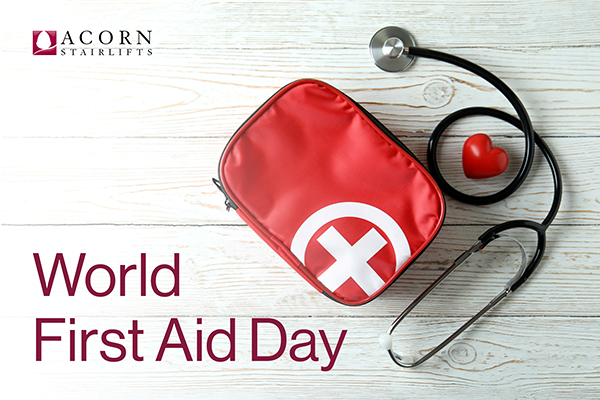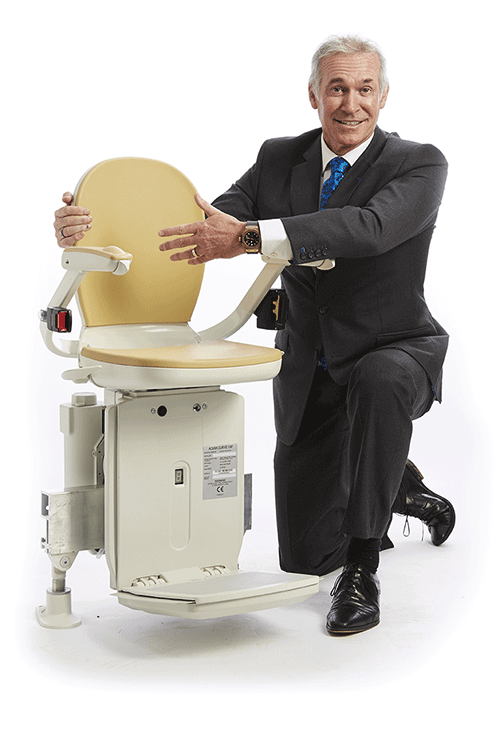Imagine you're at the heart of a bustling city, surrounded by a sea of swarming strangers rushing frantically to their destinations, when suddenly, a bald, middle-aged man in a business suit standing on a nearby corner suddenly clutches his chest and collapses, gasping for breath.
In that chaotic moment, the importance of first aid becomes more than a concept – It's the difference between helplessly watching and confidently intervening.
Incidents like these serve as a vivid reminder of how crucial it is for all of us to possess at least basic first aid skills. It's not just about being prepared for emergencies; It's about having the power to step in and make a life-changing difference when it matters most.
First aid is the ultimate empowerment, transforming ordinary individuals into everyday heroes armed with the knowledge and skills to turn the tide in critical crises that could mean the difference between life and death.
This is what World First Aid Day is all about—Always being prepared for the unpredictable.
Read on to learn about World First Aid Day, the fundamental role that first aid plays in our overall public health and safety, and some vital first aid tips that could possibly help you save a life one day.
What is World First Aid Day?
World First Aid Day’s primary purpose is to raise awareness about the importance of first aid training and educate people on how to prevent injuries and save lives in everyday situations and emergencies.
The day is a global initiative supported by various organisations, including the International Federation of Red Cross and Red Crescent Societies (IFRC), as well as the World Health Organisation (WHO).
Serving as an opportunity to promote and encourage first-aid education and training among the public, World First Aid Day emphasises the idea that everyone, regardless of their background or profession, should have a basic understanding of first aid techniques. It also stresses how this knowledge can be invaluable—even lifesaving—in responding effectively to accidents, injuries, and medical emergencies until professional medical help arrives.
Activities on World First Aid Day may include first-aid workshops, training sessions, demonstrations, and public awareness campaigns.
These events aim to empower individuals and communities to take proactive steps in improving their first-aid skills and readiness to assist others in times of need.
When is World First Aid Day?
World First Aid Day is an annual observance held on the second Saturday in September.
This year, in 2023, World First Aid Day is on Saturday, 9 of September.
What is the Theme of World First Aid Day?
The theme of World First Aid Day 2023 is “First Aid in the Digital World.”
This theme highlights the evolving landscape of first aid practices in our increasingly digitalised society, underscoring the importance of harnessing digital technologies and tools to enhance first aid awareness, training, and response.
It acknowledges that in today's world, access to information, communication, and assistance is often facilitated through digital platforms and devices. Thus, the theme encourages the integration of digital resources, such as mobile apps, online training modules, and real-time communication, into first-aid practices to make them more accessible, efficient, and effective for everyone.
The recognition of the transformative power of technology in improving our collective ability to provide timely and informed assistance during emergencies ultimately contributes to the well-being and safety of communities worldwide.
While the specific themes and activities associated with World First Aid Day may vary from year to year, the overarching goal remains consistent: to promote the importance of first aid and encourage people to acquire the skills and knowledge needed to provide immediate assistance in critical situations.
What is First Aid, and Why Is It Important?
First aid is the immediate and initial assistance provided to a person who has been injured or suddenly falls ill, typically before professional medical help arrives. It encompasses a range of simple, yet potentially life-saving techniques and interventions that can be performed by bystanders or individuals without formal medical training.
First aid aims to address immediate health concerns, such as stopping bleeding, clearing airways, administering CPR, and providing basic wound care, with the primary goals of preserving life, preventing the condition from worsening, and promoting recovery.
The importance of first aid cannot be overstated, as it serves as the first line of defense in medical emergencies. Rapid and appropriate first aid can mean the difference between life and death, especially in situations where every second counts.
It not only saves lives but also reduces the severity of injuries, minimises complications, and lessens the suffering of the injured or ill person. Furthermore, first aid plays a crucial role in bridging the gap between the occurrence of an incident and the arrival of professional medical assistance, ensuring that immediate care is given when it is needed most.
Ultimately, first aid is an indispensable skill that empowers individuals to take effective action in critical situations, making it a cornerstone of public health and safety.
Life-Saving First-Aid Tips That Everyone Should Know
1. Keep Your Own Personal First-Aid Kit on Hand
While injuries and illnesses are never welcomed into our lives, they are unavoidable. Whether it’s a dangerous fall down the stairs, a knife cut to your thumb while chopping onions, or a burn from the red-hot iron, these are the messy accidents of life that we need to be prepared for.
Having a first-aid kit on hand allows you to always stay prepared with the proper medications and supplies needed to quickly tend to any unanticipated wound, ache, or pain.
What Should Be in a First-Aid Kit?
Are you unsure of how to navigate the process of building your own personal first-aid kit or what essential items to include when putting it together?
Click here for helpful tips and instructions on what medical supplies to include when constructing your own personal first-aid kit.
2. Get Proper First-Aid Training
Proper first-aid training is invaluable knowledge that could potentially save someone’s life.
Equipping individuals with life-saving skills, the ability to respond effectively in emergencies, and the confidence to assist those in need in critical situations, the crucial role of first-aid training in public health and safety cannot be overstated.
To get proper first-aid training, consider enrolling in a certified first-aid course offered by official health and medical organisations. These courses provide hands-on instruction on essential first-aid skills and techniques, including CPR, wound care, and emergency response procedures.
Furthermore, extensive education options provided by several online platforms that offer first-aid training modules, allow proper first-aid training to be more accessible to a wider public.
3. Stay Informed on the Latest First-Aid Guidelines and Practices
Staying informed about the latest first-aid guidelines and practices is essential because it ensures that your knowledge and skills remain up-to-date and aligned with the most current medical advancements.
First-aid protocols and techniques may evolve over time as new research and technologies emerge, so staying informed helps you provide the most effective and safe assistance during emergencies.
Additionally, adhering to the latest guidelines ensures that you can adapt to changing circumstances and provide the best possible care, enhancing the chances of positive outcomes for the injured or ill individuals you may encounter.
At the end of the day, staying informed in the field of first aid is a commitment to maintaining the highest standard of care when contributing to overall public safety and well-being.
4. Be Prepared for an Emergency Situation with Plenty of Practice
Emergency situations can strike at any moment.
However, being fully prepared and remaining calm, cool, and collected when an emergency situation does strike requires both a solid foundation of knowledge and plenty of practice.
Start by educating yourself about potential hazards in your area, as well as the appropriate response protocols.
To ensure readiness, regularly review your emergency plan with family, coworkers, or household members, including escape routes and meeting points. Practise these plans through emergency drills so that everyone knows what to do in case of a disaster.
Remember that regular practice builds confidence and muscle memory, enabling you to respond quickly and effectively when faced with a crisis.
In emergency situations, this quick and competent first aid can be the difference between life and death, emphasising the importance of staying prepared and proficient in these critical skills.
For more insightful tips that will help you always stay prepared for common emergencies, click here.
5. Don’t Panic—Call for Professional Help
Emergencies can often be unexpected and unsettling experiences for anyone; however, it is essential to remember these words of wisdom in the throes of crises times—Don’t panic and remain calm.
While it may feel like a natural response to panic and lose your cool during these adrenaline-fueled moments, these intense, emotional reactions will not help anyone and may even heighten anxiety in a high-pressure situation.
This panic can cloud people’s judgement, causing them to make poor decisions or to freeze entirely and not take any action at all during the most critical seconds.
However, regardless of your first-aid knowledge or readiness, remaining calm and immediately calling for professional help is one of the most important actions you can take to preserve someone’s life.
Remember that first responders are people who are professionally trained to handle these types of high-stakes situations, so the sooner you call them, the sooner these heroes can be on scene to help.

